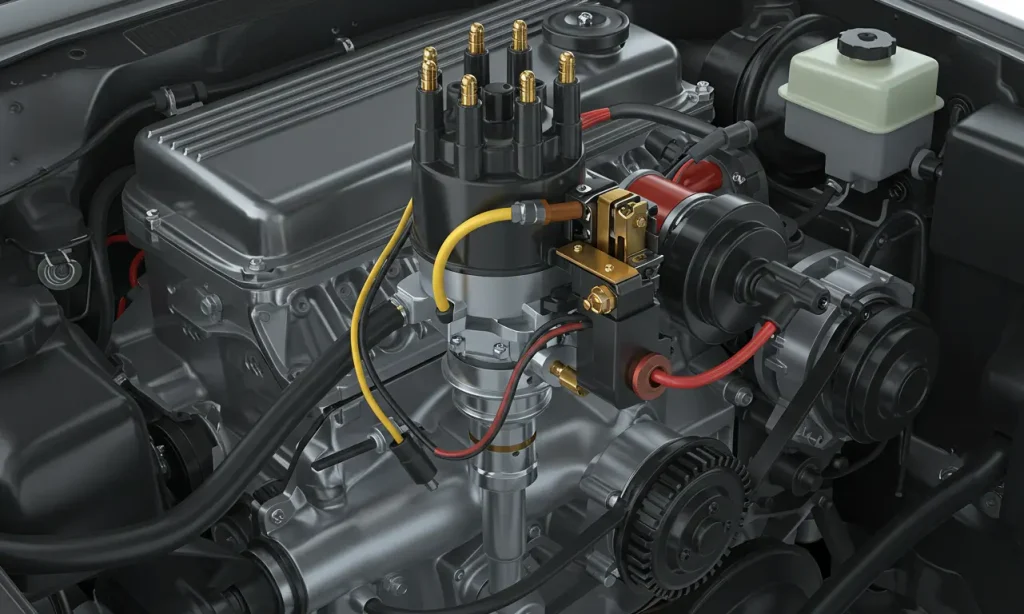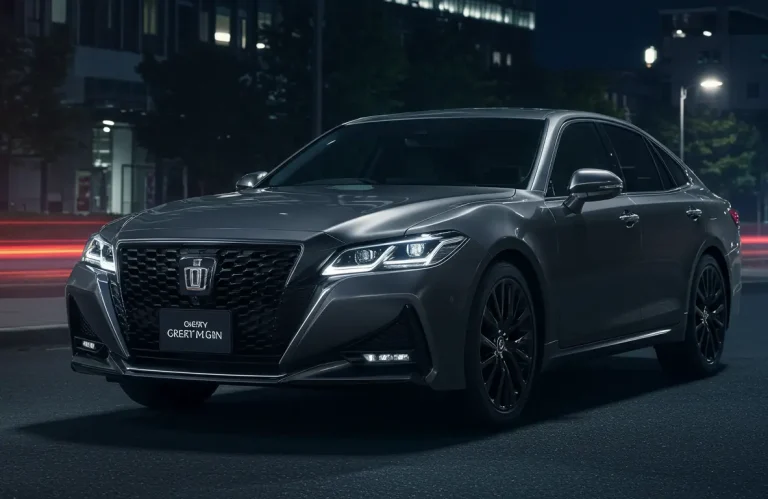Bad Distributor Symptoms and How to Fix Them Fast
Whenever your car is acting up, there can be one specific component at fault, and that is the distributor. It is a small yet important component that contributes to the sparking up of your engine. Symptoms of bad distributors can be very harsh starts, engine misfiring, or stalling.
Ignoring these signs can cost you more later. In this guide, we’ll break down the symptoms of a bad distributor so you know what to look for.

What Is a Distributor?
The distributor is a component of the ignition system in older cars. Its purpose is to pass high-voltage electricity to the right spark plug at the right moment, produced by the ignition coil. This discharge assists the cylinder of the engines to ignite effectively in order to make the car run smoothly.
Within the distributor is a spinning arm, also known as a rotor. Once it rotates, it sends current to other spark plug wires, which are attached to the cylinders. It must be the right time; otherwise, the engine is likely to misfire or run rough.
Distributors tend to have points and a condenser, which help in the regulation of spark timing. In modern times, most cars have an electronic ignition system, although many older cars still require a distributor.
Common Bad Distributor Symptoms
At first, I didn’t know why my car was acting weird—it just felt off. After some digging, I discovered that the distributor was the real issue.
Engine Misfires
The engine can shake or hesitate while running. This happens when spark plugs don’t get power at the right time. Misfires can lower fuel efficiency and damage engine parts if left unchecked.
Trouble Starting the Engine
The engine can crank for a long time or not start at all. This is one of the symptoms of bad distributor timing. A failing distributor is a common cause in older vehicles.
Unusual Engine Sounds
Any clicking or tapping sounds can come from the engine, which is a result of uneven combustion due to incorrect spark timing. When ignored, it has the potential to cause long-term damage.
Poor Engine Performance
The car can feel sluggish, especially when speeding up. Weak spark delivery means fuel doesn’t burn efficiently. This reduces both power and fuel economy.
Engine Stalling
The engine can randomly shut off while driving or idling. This can happen when the distributor stops sending sparks to the engine. Frequent stalling creates safety risks and requires quick repair.
Check Engine Light Turns On
The vehicle’s computer can detect spark issues and turn on the check engine light. It often stores error codes related to misfires. A diagnostic scan can help pinpoint if the distributor is the cause.
Also Read: Car Shakes at Idle but Smooths Out While Driving
What Causes Distributor Problems?
The distributor issues tend to occur due to wear, dirt, or electrical-related problems. Being part of the mechanism, its movable parts can become worn out over time and not function properly.
Rotor/Cap Worn Out
The rotor and the cap in the distributor are worn due to friction and heat. Once worn, they are not able to pass the spark effectively. This puts forth weak or slow ignition.
Dirty, Oil, or Wet Content in the Distributor
Dust or oil can enter the cap and stop the flow of electricity. Corrosion or short circuit can arise due to moisture. This causes a backfire or stalling.
Bad Ignition Coil or Wires
In case the coil or connecting wires get damaged, the distributor will not receive enough power. The result of that is dud sparks or poor ones. It can cause a bad engine idle or engine stalls.
Timing Issues
The timing of the distributor can change with time. When wrong even in a tiny bit, the spark can go too soon or too late. This leads to lousy engine performance or misfiring.
Internal Mechanical Injury
The bearings within the distributor, or even the rotating shaft, can become worn. When this is the case, there is a possibility that the rotor fails to rotate properly. It is a problem that influences spark delivery, and it makes the engine behave unpredictably.
How to Fix or Replace It?
If your distributor is causing issues, you can either repair it or replace it. The right choice depends on how badly it’s worn or damaged.
Clean the Distributor Cap
There are problems when it is simply dirt, oil, or moisture within the cap. The issue can be addressed by removing the cap and cleaning it with a dry cloth or a contact cleaner. Ensure that it becomes dry enough to be reinstalled.
Replace the Cap and Rotor
If the cap or rotor is cracked or worn, it can be replaced without changing the whole distributor. This is a common and low-cost repair. It often brings back normal engine performance.
Check and Replace Wires or Coil
Inspect the ignition coil and wires connected to the distributor. Any damaged or improper wire should be replaced. A faulty ignition coil will also need to be changed.
Adjust the Timing
If spark timing is off, a mechanic can adjust the distributor’s position. This helps the engine fire at the right moment. Correct timing improves power and fuel efficiency.
Replace the Entire Distributor
If the distributor is badly worn or damaged inside, full replacement is the best option. Most of the vehicles have new distributors, and they are not very costly. It can be installed by a mechanic and timed properly.
Cost of Repair or Replacement
Repaired replacement of minor components, such as the cap or rotor, can range from $ 20 to $ 70. A whole distributor replacement ranges in cost between $ 150 and $ 400, which includes the price of labor. These higher repair costs can be prevented through regular maintenance.
Conclusion
A bad distributor can lead to serious engine problems if you ignore the early signs. Misfires, hard starts, stalling, and strange sounds often point to this issue. The good news is that many distributor problems are easy to fix if caught early.
A quick check or a small repair can save you from costly engine damage later. So if your car starts acting strange, don’t wait—have the distributor inspected by a trusted mechanic.
Read More: FCW System Failed Honda
FAQs
What Are the Symptoms of Distributor Out of Time?
Some incorrect timing symptoms can include engine knocking or pinging, a loss of power or acceleration, decreased fuel economy, an overheating engine, or a rough idle.
Will a Check Engine Light Turn On if the Distributor Is Bad?
In many cases, yes. The engine control unit can detect misfires or poor spark timing and trigger the check engine light. A scan tool can confirm the exact issue.
Can a Bad Distributor Cause Loss of Power?
Yes, a bad distributor can cause a loss of power. When it fails to send spark at the right time, the engine doesn’t run efficiently and struggles to accelerate.
How Much Does It Cost to Fix a Bad Distributor?
Replacing just the cap and rotor can cost $20–$70. A full distributor replacement can range from $150 to $400 with labor, depending on your car model.
Read More: Honda Odyssey Firing Order for Smooth Performance






